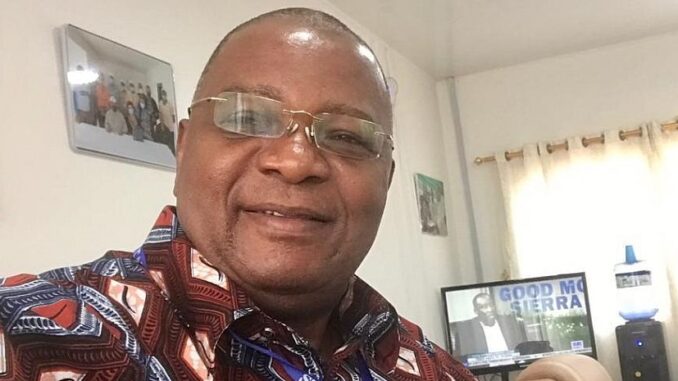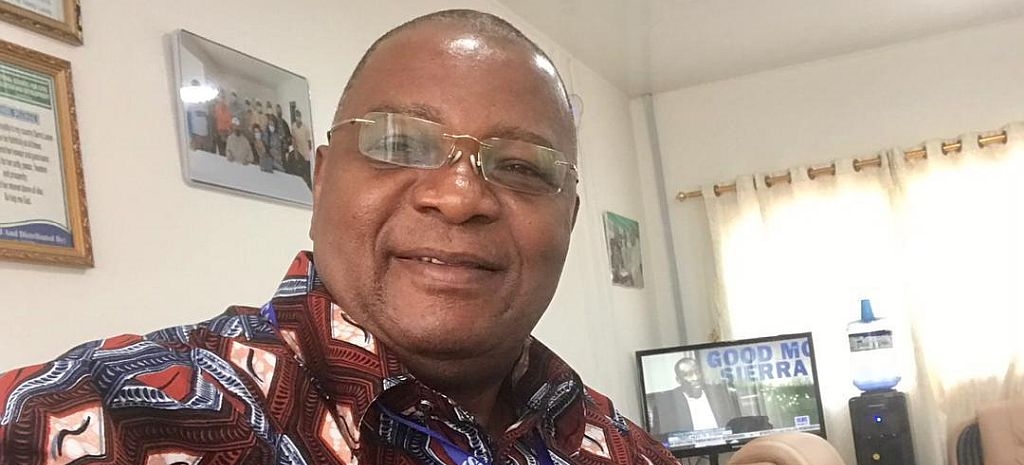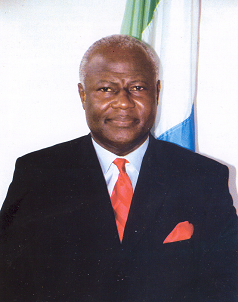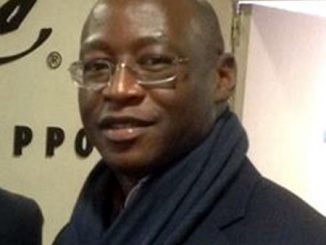
A Politicized Census Has Sierra Leone’s Opposition Crying Foul
Jamie Hitchen Thursday, June 23, 2022
Jamie HitchenThursday, June 23, 2022
When Sierra Leone released the provisional figures of its population and housing census on May 31, the numbers suggested a population increase of 6.3 percent since the last count in 2015. That’s not an unexpected rise over a six-year period, given that the country’s estimated annual growth rate was 3.2 percent during the 10 years prior. Nevertheless, the way population growth was distributed across the country has sparked ongoing debate about the credibility of the census, particularly in anticipation of general elections next year.
The country’s southern and eastern districts saw significant population jumps, with the biggest increases in Kenema, with 26.7 percent; Bo, with 31.5 percent; and Bonthe, with 48.2 percent. Meanwhile, districts in the north and west saw important declines. Bombali’s population dropped by 36.1 percent, for instance, while Western Area Urban and Rural, which includes the capital city Freetown, declined by 45.8 percent and Koinadugu by 49.6 percent.
If these numbers raised eyebrows, it was because of how they fit into Sierra Leone’s electoral context. The southern and eastern districts are the political strongholds of the ruling Sierra Leone Peoples Party, or SLPP, while the northern and western districts are where the opposition All People’s Congress, or APC, draws most of its support.
The population declines in Bombali and Koinadugu can partially be explained by the creation of two new districts that were formed out of them in 2017—Karene and Falaba, respectively—with the redistribution of populations to these districts reflected in the provisional census data. But the overall picture, in which southern and eastern districts’ populations have grown by nearly 700,000 since 2015, while northern and western districts saw a decline of nearly a quarter of a million in the same period, is more
PROFESSOR OSMAN SANKOH
But that is supposing the 2015 census data, to which the current numbers are being compared, was itself credible and not shaped by political imperatives. And that’s an unlikely claim.
The 2021 census exercise is Sierra Leone’s sixth since independence in 1961 and the third since the end of the country’s civil conflict in 2002. While the censuses that took place under then-President Siaka Stevens in 1974 and 1985 were far-from problem-free, their anomalies were less driven by political calculations, given that the country was a one-party state at the time. The 2004 exercise following the civil war was “one of the most inclusive, widely accepted and non-politically motivated censuses in the country’s recent history,” according to Joel Kallon, a digital rights campaigner and CEO of Meraki Analytics.
But this turned out to be the highwater mark, with subsequent censuses held in 2015 and now in 2021 marred by accusations and counteraccusations of political influence and manipulation. Both sets of figures “have been criticized for being manipulated to produce higher population figures in the strongholds of the ruling party,” noted Andrew Keili, a social and political commentator.
In the runup to the 2021 census, preparations for the process were challenged by political opposition leaders, who called for a boycott, while leading civil society groups expressed concerns about “a lack of inclusivity” and insufficient “transparency” as well as funding constraints. The World Bank pulled its technical and financial support for the process just days before the counting was due to begin on Dec. 9, stating that the government had failed to meet the necessary conditions for the funds to be disbursed.
All of these factors “undermine the credibility of the data,” said Keili.
Osman Sankoh, the country’s statistician general and chief census officer, claimed that the census numbers reflect individuals’ decision to “move to their hometowns and villages to be counted,” but this has not been supported by evidence. Instead, Kallon believes a much likelier scenario is that “a large number of Sierra Leoneans were either not reached by census enumerators or they refused to participate in the process.”
Beyond electoral considerations, Sierra Leone’s inaccurate census data can have significant implications for everyday governance and wider development.
With the country’s general elections scheduled for June 2023, the census data is potentially favorable to the ruling SLPP in its efforts to both secure the presidency and increase its slender parliamentary advantage. First and foremost, census figures are used to update the voter registry. So, having more voters in areas of significant political support would be to the SLPPs advantage in the presidential ballot, which is tabulated nationally. The Electoral Commission of Sierra Leone may also look to use the census data to redraw voting districts, which would likely increase the number of parliamentary seats in the southern and eastern regions. A 2017 boundary delimitation exercise undertaken by the commission using the 2015 census data saw the addition of 20 parliamentary seats, nine of which were in the newly created districts of Karene and Falaba. The APC subsequently won eight of those nine seats in 2018, which initially gave them a parliamentary majority, even though the SLPP won the presidency. A series of controversial court cases subsequently eroded this legislative advantage.
But beyond elections, inaccurate census data can have significant implications for everyday governance and wider development. Take Freetown, for example, where the 42.5 percent population decline outlined by the 2021 figures is at odds with growth trends and even official forecasts, as well as residents’ lived experience.
“It is difficult to understand the reversal of the urban population in 2021, as there has not been a proportionate urban-rural migration,” said economist Franklin Sisabu Bendu. But the impact could be significant, given that one of the decisive criteria for allocating federal grants to local councils is population. “Based on these provisional results, the combined allocation to Kenema district and city councils for various devolved sectors will be higher than the allocation to Freetown City Council,” Bendu added.
Unsurprisingly, Freetown’s mayor, Yvonne Aki-Sawyerr, has been quick to raise her concerns about the accuracy of the census data. In a public letter to the statistician general on June 8, Aki-Sawyerr, who was elected on an APC ticket, sought to challenge the Freetown population estimates made in the census by pointing to recent school attendance and examination records, housing figures and the fact that the 2018 electoral register had more registered voters than the current population estimates. Aki-Sawyerr’s political allegiance, the tensions that already exist between her and the central government, and the fact that the APC has been vociferous in its criticism of the census process make it possible for her opponents to dismiss her statement as political maneuvering. However, they have not yet provided a credible explanation for the dramatic decline in Freetown’s population that the census figures indicate.
Another casualty of an unreliable census is the accurate and credible data needed to support effective planning that can address basic service needs across the country. “Data of questionable integrity creates significant problems for policy and development planning,” said Kallon. “The implications for investment, service delivery and the provision of basic social amenities are huge.”
This politicization of census data only serves to amplify existing, and increasingly entrenched, political divisions in the country. And as the figures are unlikely to be revised anytime soon, they are likely to have ramifications for the perceived credibility of the upcoming June 2023 general elections.
Jamie Hitchen is an independent political analyst and honorary research fellow at the University of Birmingham. You can find him on Twitter at @jchitchen. https://www.worldpoliticsreview.com/articles/30630/sierra-leone-elections-could-be-marred-by-politicized-census




